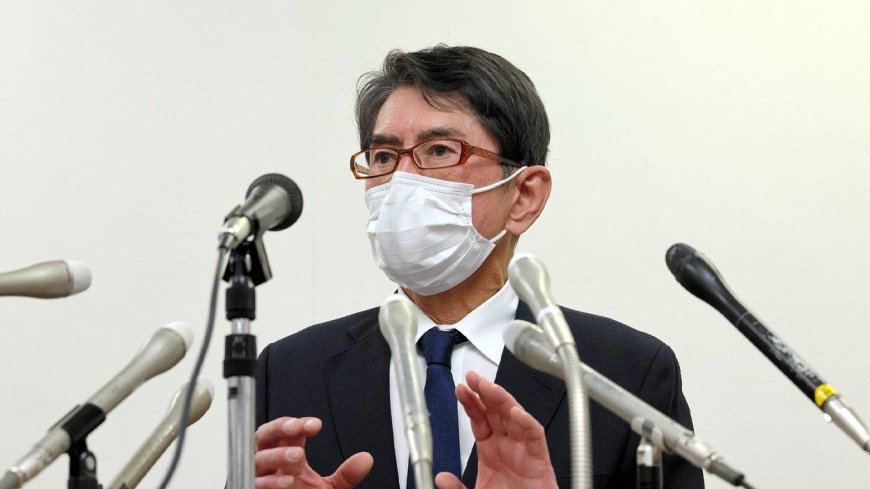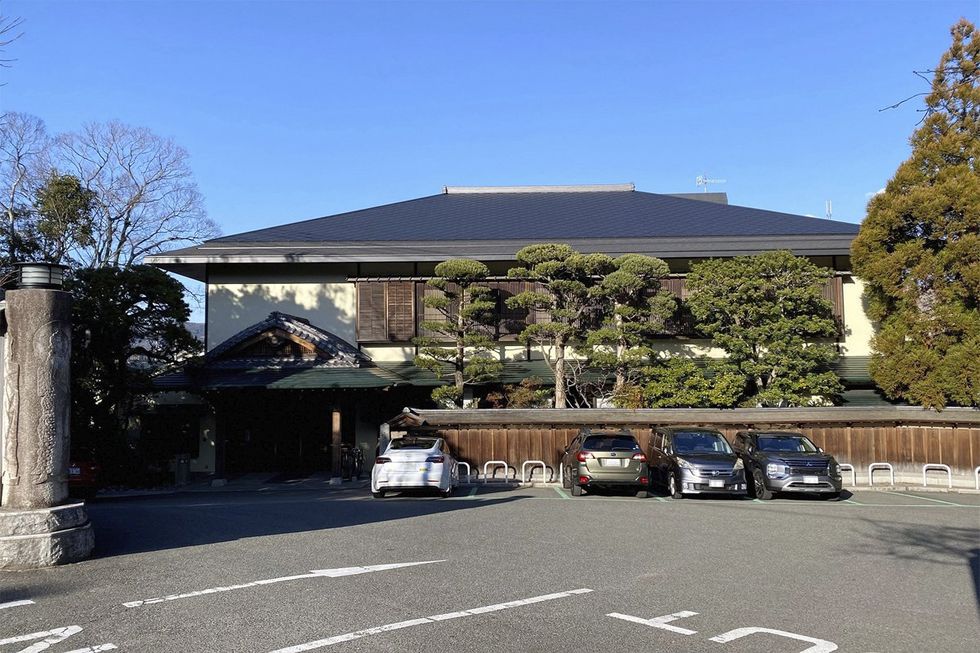Upscale Japanese Hotel Only Changed Spa Water Twice a Year
Editor's Update: The former president of the hotel, 70-year-old Makoto Yamada, was recently found dead by suicide, less than two weeks after he quit in disgrace over the discovery that the spa water in his upscale Japanese guesthouse was teeming with legionella bacteria. Yamada was facing a criminal complaint.By Junko Ogura and Lianne Kolirin, CNN March 1, 2023 (CNN) -- The boss of a 158-year-old Japanese guesthouse has apologized for only changing the water in its spa bath twice a year, after it was found to be teeming with potentially deadly bacteria.A health inspection of the onsen, a traditional Japanese bath using water from volcanically heated hot springs, at the Daimaru Besso inn in Chikushino, Fukuoka Prefecture, detected legionella bacteria at 3,700 times the permitted level, CNN affiliate TV Asahi reported.According to local regulations, the water at the onsen should have been changed on a weekly basis. But management at the hotel admitted that it was only changed twice a year.Addressing a press conference on Tuesday, Makoto Yamada, the president of the company that owns the ryokan (traditional guesthouse), bowed deeply and said he regretted the lack of action taken, adding: "I am very sorry."Legionella bacteria can cause Legionnaires' disease, a serious type of pneumonia. People can get sick when they breathe in small droplets of water containing the bacteria, causing an infection in the lungs. The illness can be treated with antibiotics.The bacteria can occur in shower heads and faucets, hot tubs, cooling towers, hot water tanks, decorative fountains or plumbing systems in large buildings.Yamada said he was unaware of the importance of changing the water. He told the press conference: "I was not aware of the law myself and thought that legionella bacteria was a common bacterium that could be found anywhere, and also that it was safe because the large baths were free-flowing so the water was changed quite often." The Asahi Shimbun/Getty ImagesThe baths were temporarily shut down after the bacteria were detected last year but have returned to being fully operational. Yamada told the press conference that he used the baths himself, even after the bacteria were detected.The ryokan's website says of its baths: "Our bath waters come from the Futsukaichi Onsen, which has been flowing for over 1,300 years, a symbol of the unchanging history of the area."Futsukaichi Onsen has been visited by government dignitaries and priests for centuries. Its soft and smooth waters leave your skin feeling supple and your mind at ease."The water, the website claims, helps relieve "chronic joint pain, nerve pain, gastrointestinal issues, burns, skin issues."Yamada told the press conference that his team had neglected to add chlorine to the water for hygiene purposes "because we selfishly disliked the smell of chlorine."The-CNN-Wire™ & © 2023 Cable News Network, Inc., a Warner Bros. Discovery Company. All rights reserved.


Editor's Update: The former president of the hotel, 70-year-old Makoto Yamada, was recently found dead by suicide, less than two weeks after he quit in disgrace over the discovery that the spa water in his upscale Japanese guesthouse was teeming with legionella bacteria. Yamada was facing a criminal complaint.
By Junko Ogura and Lianne Kolirin, CNN
March 1, 2023 (CNN) -- The boss of a 158-year-old Japanese guesthouse has apologized for only changing the water in its spa bath twice a year, after it was found to be teeming with potentially deadly bacteria.
A health inspection of the onsen, a traditional Japanese bath using water from volcanically heated hot springs, at the Daimaru Besso inn in Chikushino, Fukuoka Prefecture, detected legionella bacteria at 3,700 times the permitted level, CNN affiliate TV Asahi reported.
According to local regulations, the water at the onsen should have been changed on a weekly basis. But management at the hotel admitted that it was only changed twice a year.
Addressing a press conference on Tuesday, Makoto Yamada, the president of the company that owns the ryokan (traditional guesthouse), bowed deeply and said he regretted the lack of action taken, adding: "I am very sorry."
Legionella bacteria can cause Legionnaires' disease, a serious type of pneumonia. People can get sick when they breathe in small droplets of water containing the bacteria, causing an infection in the lungs. The illness can be treated with antibiotics.
The bacteria can occur in shower heads and faucets, hot tubs, cooling towers, hot water tanks, decorative fountains or plumbing systems in large buildings.
Yamada said he was unaware of the importance of changing the water. He told the press conference: "I was not aware of the law myself and thought that legionella bacteria was a common bacterium that could be found anywhere, and also that it was safe because the large baths were free-flowing so the water was changed quite often."
 The Asahi Shimbun/Getty Images
The Asahi Shimbun/Getty Images
The baths were temporarily shut down after the bacteria were detected last year but have returned to being fully operational. Yamada told the press conference that he used the baths himself, even after the bacteria were detected.
The ryokan's website says of its baths: "Our bath waters come from the Futsukaichi Onsen, which has been flowing for over 1,300 years, a symbol of the unchanging history of the area.
"Futsukaichi Onsen has been visited by government dignitaries and priests for centuries. Its soft and smooth waters leave your skin feeling supple and your mind at ease."
The water, the website claims, helps relieve "chronic joint pain, nerve pain, gastrointestinal issues, burns, skin issues."
Yamada told the press conference that his team had neglected to add chlorine to the water for hygiene purposes "because we selfishly disliked the smell of chlorine."
The-CNN-Wire
™ & © 2023 Cable News Network, Inc., a Warner Bros. Discovery Company. All rights reserved.

 Mark
Mark 





